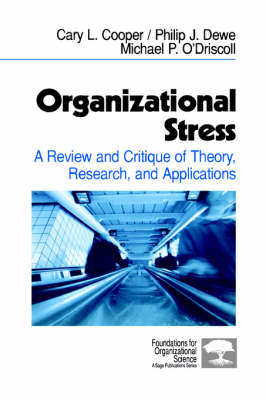Foundations for Organizational Science
1 total work
Organizational Stress
by Cary L. Cooper, Philip J. Dewe, and Michael P. O'Driscoll
To the individual whose health or happiness has been ravaged by an inability to cope with the effects of job-related stress, the costs involved are clear. But what price do organizations and nations pay for a poor fit between people and their work environments? Only recently has stress been seen as a contributory factor to the productivity and health costs of companies and countries but as studies of stress-related illnesses and deaths show, stress imposes a high cost on individual health and well-being as well as organizational productivity.
This book examines stress in organizational contexts. The authors review the sources and outcomes of job-related stress, the methods used to assess levels and consequences of occupational stress, along with the strategies that might be used by individuals and organizations to confront stress and its associated problems. One chapter is devoted to examining an extreme form of occupational stress – burnout, which has been found to have severe consequences for individuals and their organizations. The book closes with a discussion of scenarios for jobs and work in the new millennium, and the potential sources of stress that these scenarios may generate
The book is a comprehensive, thought-provoking resource for Ph.D. students, academics, and other professionals working to minimize or eliminate the sources of stress in the workplace.
